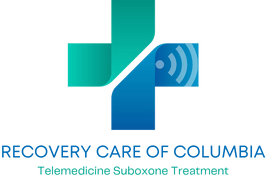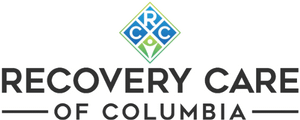Columbia Suboxone Clinic Blog
Inpatient Treatment vs. Outpatient Suboxone Maintenance: What’s Best for You?
If you’re struggling with opioid addiction and living in a rural part of Tennessee, the idea of treatment may feel overwhelming. You might have kids, a job, limited transportation—or maybe you’re just plain tired of chasing pills. Whether you’re hiding your addiction or trying to help someone you love, it’s time to understand your options.
Two paths are often considered: inpatient rehab and outpatient Suboxone maintenance. In this article, we’ll break down both options and help you decide what’s best for you or your family.
What Is Inpatient Treatment?
Inpatient rehab involves checking into a facility for 30, 60, or 90 days, sometimes longer. You live on-site, follow a structured routine, and attend therapy, group sessions, and medical evaluations.
Pros of Inpatient Treatment
-
24/7 supervision and support
-
Complete separation from daily triggers
-
Structured schedule for recovery
Cons of Inpatient Treatment
-
Time away from family, work, and responsibilities
-
Expensive (even with insurance)
-
Difficult for people in rural areas with transportation issues
-
Not practical for parents or those with jobs
- Living in a “safety bubble” (Returning home to familiar environments and triggers can be challenging)
What Is Outpatient Suboxone Maintenance?
Outpatient Suboxone treatment allows you to recover at home with the help of Suboxone, a medication that virtually eliminates opioid withdrawal and cravings. It’s especially powerful when combined with virtual appointments and counseling.
Pros of Outpatient Suboxone Maintenance
-
Stay home with your kids
-
Keep your job and daily routine
-
Affordable (covered by TennCare and most insurance)
-
No need for transportation if done via telemedicine
-
Private and discreet care
Cons of Outpatient Suboxone Maintenance
-
Requires self-motivation and honesty
-
Still exposed to triggers in your environment
-
Needs reliable internet or smartphone access
Why Rural Tennesseans Choose Outpatient Suboxone
Many people from small towns like Hickory Valley, McKenzie, Niota, Nolensville, and Rockford can’t afford to leave their families behind for weeks at a time. They also might not have access to nearby rehab centers. That’s where outpatient Suboxone via telemedicine shines.
If you’ve ever bought Suboxone on the street just to avoid withdrawal, you’re not alone. But you don’t have to live like that anymore. Real help is available—and it works.
Who Is a Good Fit for Outpatient Suboxone Maintenance?
You might benefit from outpatient Suboxone if:
-
You’ve been using heroin, fentanyl, Percocet, OxyContin, oxycodone, or Kratom
-
You’re scared of withdrawals
-
You want to stop for your kids or family
-
You’re tired of hiding your addiction
-
You’re ready to take control but can’t afford to leave home
Transitioning to Suboxone: What to Expect
Most patients are shocked by how easy the transition is. When done right, switching to Suboxone can be painless and effective within hours. You’ll go from feeling trapped to feeling hopeful in one day.
And yes—virtual Suboxone treatment is 100% legal and safe, backed by medical providers who specialize in opioid addiction recovery. Joint Commission-accredited clinics like Recovery Care of Columbia consistently provide the highest standards of care for virtual addiction treatment.
Comparing Costs: Inpatient vs. Outpatient
| Feature | Inpatient Rehab | Outpatient Suboxone via Telehealth |
|---|---|---|
| Cost | $10,000–$30,000/month | Often covered by insurance or $99–$199/month self-pay |
| Disruption to Life | High | Low |
| Insurance Coverage | Limited | Covered by TennCare and Commercial Insurance |
| Flexibility | None | High |
| Family Involvement | Minimal | Daily contact at home |
FAQs: Inpatient vs. Outpatient Suboxone
Is Suboxone enough to recover from opioid addiction?
Yes, when combined with counseling and support, Suboxone is extremely effective. It reduces cravings and withdrawal, giving you space to rebuild your life.
Can I start Suboxone online from home?
Absolutely. Recovery Care of Columbia offers fully virtual treatment options. Start here.
What if I don’t have insurance?
You can still get help. Learn about self-pay options.
Is inpatient ever necessary?
For some, especially those with life-threatening addiction or co-occurring disorders, inpatient can be helpful. But it’s not the only way.
Final Thoughts: Which One Is Right for You?
If you’re tired of the cycle—whether it’s buying Suboxone off the street or struggling to make it through the day—there’s a better way. And it doesn’t involve leaving your family or job.
External Addiction Resources
- DEA.gov – Opioid addiction-related articles
- Substance Abuse and Mental Health Services Administration (SAMHSA)
- Centers for Disease Control and Prevention | CDC.gov
- Tennessee Department of Health Drug Overdose Dashboard
- National Institute on Drug Abuse
- National Center on Substance Abuse and Child Welfare



